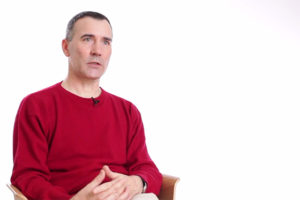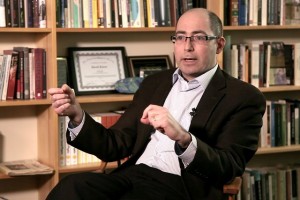Global Architecture History
Professor Mark Jarzombek on what Buddhist temples express, transfer of architectural techniques, and the Euroc...
What were the historical approaches to researches of Soviet economy? What are the obstacles of studying different influences of the Soviet economy? Professor of Economics at the University of Warwick Mark Harrison speaks on how to unveil hidden relationships of Soviet management authorities.
They thought to see two things and one is the true scale of the Soviet military industrial complex, which didn’t encompass the whole economy, but nonetheless it was an important part of the economy and its influence spread through the rest of the economy, through things like mobilization plans. So understanding the scale of Soviet rearmaments and the military-industrial complex was one dimension, another dimension was trying to come to a better understanding of the external context of Stalin’s “Velikij perelom”, the great breakthrough of the first five-year plan and the conversion of the Soviet Bolshevik one-party state into Stalin’s personal dictatorship.
There’s another scholar, who’s name I’m going to mention Vladimir Kantorovich. He works in American College. His contributions has been to say we ought to take seriously, what the Bolsheviks said. And it happens a lot in Western economics that you discount what the politicians say, because we know the politicians by promises that don’t keep, we know the politicians lie, so why bother to read what they said in the first place, why don’t we just look at the results? And what Kantorovich says is we should pay attention to what Lenin and Stalin said about their economic goals. I think, if you look carefully at what they wrote about the economy, you do see some things that are clearly then expressed in the Bolshevik strategy and in the Soviet system of rule.
It’s much harder for historians to learn about the role of the security services in economic policy or in decision making partly because we really only have access to archives of the security services of 1930s. That’s changing because there’s now a ring the independent states, that were formerly part of the Soviet Union, which have taken very different political paths and some of them are taking the path of opening up their security archives. So particular the Baltic states: Latvia, Lithuania, Estonia; Ukraine for a short period but no longer, Georgia is a country that is opening up their archives so that we can look at how the security services operated in the Soviet borderlands. We can try to infer therefore how they operated on the scale of the whole Soviet Union.

Professor Mark Jarzombek on what Buddhist temples express, transfer of architectural techniques, and the Euroc...

Historian Richard Bourke on political community, history of political philosophy, and the modern struggle over...

Physicist David Kaiser on measuring time delay, problems of communications during war, and governments impact ...